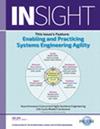基于改进时间卷积网络的多视图特征融合故障诊断方法
IF 1
4区 工程技术
Q4 INSTRUMENTS & INSTRUMENTATION
引用次数: 1
摘要
本文采用神经网络方法对旋转机械的振动数据进行分析,解决了故障识别问题。时间卷积网络(tcn)在故障识别领域引起了广泛的关注。然而,TCN卷积核很小,容易受到高频噪声干扰。此外,内部残余连接的默认权重系数为1。当残差块较少时,残差块特征提取能力受到抑制,仅利用单个位置采集到的振动信号进行故障诊断,其包含的故障信息不全面。针对上述问题,本文提出了一种基于自适应残差系数分配的宽第一层核TCN (WD-ARCATCN)多视图特征融合故障诊断算法。首先,设计WD- arcatcn特征提取网络,从不同角度提取深度状态特征,并将TCN的第一层设置为宽核(WD)卷积层,抑制高频噪声;残差连接中设计了自适应残差系数分配(ARCA)单元,提高残差块的特征学习能力,并对带有ARCA单元的残差块进行叠加,进一步提取多视图深断层特征。本文首次采用不同位置采集的加速度信号作为多视图特征源,所包含的故障信息更加全面。然后,基于自关注机制,改进多视图特征融合方法,自适应分配视图权重,有效融合不同视图特征,增强故障特征的识别能力;最后,使用softmax分类器实现多视图融合特征与标签之间的映射。该算法已经使用凯斯西储大学(CWRU)轴承振动数据库的实验数据进行了测试,与其他诊断算法相比,它的性能要好得多。本文章由计算机程序翻译,如有差异,请以英文原文为准。
Multi-view feature fusion fault diagnosis method based on an improved temporal convolutional network
This paper addresses the problem of fault identification in rotating machinery by analysing vibration data using a neural network approach. Temporal convolutional networks (TCNs) have attracted a lot of focus in the domain of fault identification; however, TCN convolution kernels are small and susceptible to high-frequency noise interference. Furthermore, the default weight coefficient of the internal residual connection is 1. When there are few residual blocks, the residual block characteristic extraction ability is suppressed and only the vibration signal collected at a single location is utilised for fault diagnosis as it contains incomprehensive fault information. To tackle the above issues, this paper proposes a multi-view feature fusion fault diagnosis algorithm with an adaptive residual coefficient assignment TCN with wide first-layer kernels (WD-ARCATCN). Firstly, a WD-ARCATCN feature extraction network is designed to extract deep state features from different views and the first layer of the TCN is set as a wide-kernel (WD) convolutional layer to suppress high-frequency noise. An adaptive residual coefficient assignment (ARCA) unit is designed in the residual connection to increase the characteristic learning capability of the residual blocks and the residual blocks with ARCA units are stacked to further extract multi-view deep fault features. In this paper, acceleration signals collected at different positions are used as the multi-view feature source for the first time and the fault information contained is more comprehensive. Then, based on a self-attention mechanism, the multi-view feature fusion method is improved and the view weights are adaptively assigned to effectively fuse different view characteristics and enhance the identification of the fault characteristics. Finally, the mapping between the multi-view fusion features and the labels is achieved using a softmax classifier. The algorithm has been tested using experimental data from the bearing vibration database at Case Western Reserve University (CWRU) and it performed much better compared to other diagnostic algorithms.
求助全文
通过发布文献求助,成功后即可免费获取论文全文。
去求助
来源期刊

Insight
工程技术-材料科学:表征与测试
CiteScore
1.50
自引率
9.10%
发文量
0
审稿时长
2.8 months
期刊介绍:
Official Journal of The British Institute of Non-Destructive Testing - includes original research and devlopment papers, technical and scientific reviews and case studies in the fields of NDT and CM.
 求助内容:
求助内容: 应助结果提醒方式:
应助结果提醒方式:


